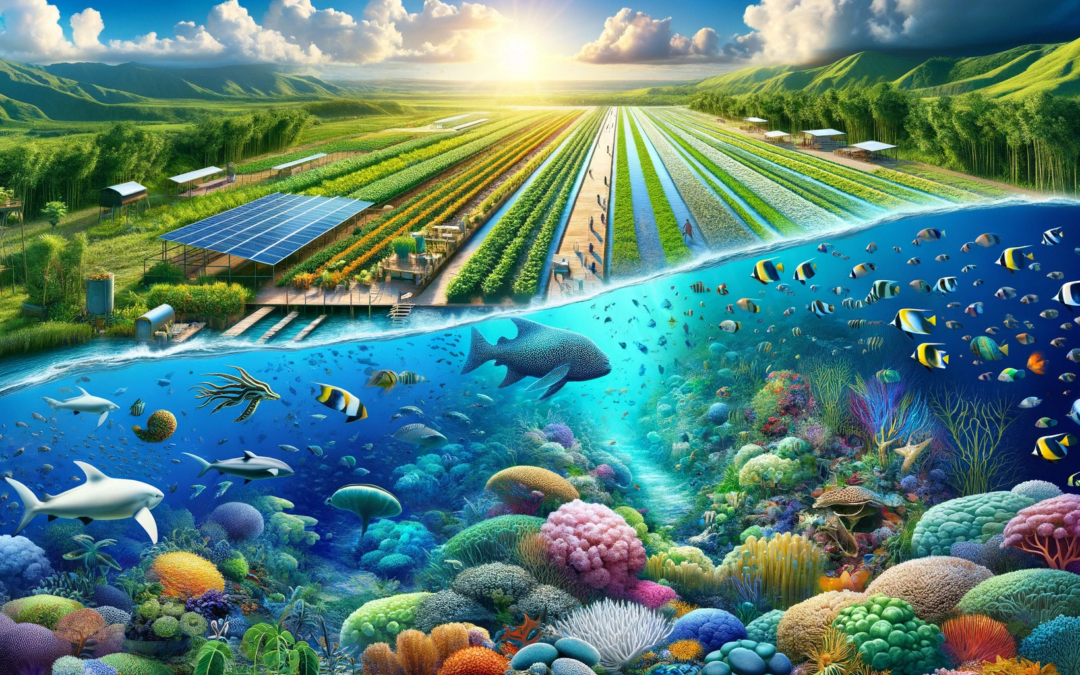In a world where the boundaries between technology and nature blur, a recent statement from a World Economic Forum (WEF) panelist has sent ripples through the global conversation about environmental stewardship and sustainability. This panelist, a figure of notable influence and expertise, declared that contemporary farming and fishing practices should be considered “ecocide” due to the often-overlooked collateral damage they inflict on ecosystems. This bold assertion invites us to ponder deeply about the intersecting realms of technology, ethics, and ecology.
Imagine a world where the fields and oceans, once teeming with life, become silent witnesses to their own desecration. The term ‘ecocide’ – the destruction of the natural environment by deliberate or negligent human action – has never been more pertinent. Traditional agricultural and fishing practices, though essential for human survival, have gradually morphed into industrial juggernauts, leaving a trail of ecological disruption in their wake.
To understand the gravity of this statement, we must first delve into the mechanics of modern farming and fishing. Industrial agriculture, with its heavy reliance on chemical fertilizers, pesticides, and genetically modified organisms, has significantly increased yield but at a considerable ecological cost. Soil degradation, water contamination, and the loss of biodiversity are just a few of the dire consequences. Similarly, industrial fishing practices, including trawling and overfishing, have led to the depletion of fish populations, disruption of marine ecosystems, and the unintended capture and killing of non-target species, known as bycatch.
The panelist’s assertion challenges us to reflect on the broader implications of our food systems. It’s a call to action, urging a reevaluation of practices that have long been accepted as necessary evils. The declaration is not merely an indictment of farming and fishing; it’s a poignant reminder of humanity’s disconnection from the natural processes that sustain life.
In the grand tapestry of existence, each thread is integral. The loss of a single species can unravel entire ecosystems, leading to unforeseen consequences. It’s a cascading effect, where the disappearance of bees, often affected by pesticides, can threaten entire crop productions, highlighting the interconnectedness of all living things.
The ethical dimensions of this debate are profound. It brings to the fore questions about our responsibility towards the planet and its inhabitants. Is it justifiable to cause extensive environmental damage for the sake of human consumption? Are there more sustainable ways to meet our nutritional needs without wreaking havoc on the environment?
Technology, often seen as a harbinger of ecological harm, might also offer a glimmer of hope. Advances in agricultural technology, such as precision farming, hydroponics, and aquaponics, present alternative methods that could minimize environmental impact. Similarly, innovations in fishing technology could lead to more sustainable practices, reducing bycatch and allowing fish populations to recover.
As we stand at this crossroads, the statement from the WEF panelist serves as a clarion call for change. It’s an invitation to reimagine our relationship with nature, to find a balance where technology and ecology coexist in harmony. This is not a call for the abandonment of farming and fishing but for a transformation in how we approach these vital activities. It’s a challenge to embrace innovation, to rekindle our reverence for nature, and to forge a sustainable path forward for the sake of our planet and future generations.
This conversation is crucial, and it is one that needs to be had on a global stage. The statement from the WEF panelist is not just a critique; it is a starting point for a much-needed dialogue about the future of our planet. It’s a dialogue that involves farmers, fishermen, scientists, technologists, policymakers, and, crucially, each one of us as consumers and inhabitants of this Earth.
In the end, the echo of ‘ecocide’ is a wake-up call. It’s a reminder that the Earth does not belong to us; we belong to the Earth. And it’s high time we start acting like it.










